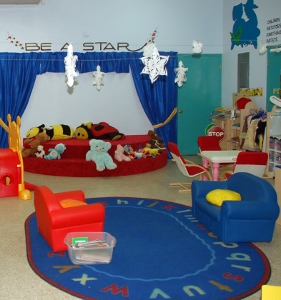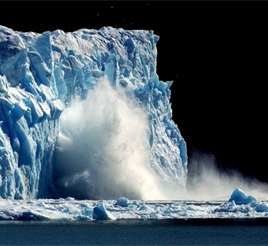Archive for June 12th, 2012

$1.3M found for pre-school
 (CNS): Government has found an extra $1.3 million in the forthcoming budget to invest in the return of Reception classes to public schools. Nine new pre-school classes will open in September at West Bay, Bodden Town and Savannah and parents can register to place their 4-year-old children from Wednesday. The education minister revealed that the funding, which he said would not come as a result of cuts in any other department, is new money from government revenue and the next step on the road to developing the country’s early years education strategy. Some 200 families are expected to benefit from the policy, made possible by the development of new classroom blocks in the relevant schools.
(CNS): Government has found an extra $1.3 million in the forthcoming budget to invest in the return of Reception classes to public schools. Nine new pre-school classes will open in September at West Bay, Bodden Town and Savannah and parents can register to place their 4-year-old children from Wednesday. The education minister revealed that the funding, which he said would not come as a result of cuts in any other department, is new money from government revenue and the next step on the road to developing the country’s early years education strategy. Some 200 families are expected to benefit from the policy, made possible by the development of new classroom blocks in the relevant schools.
Schools in Cayman Brac, East End and North Side had always retained the Reception class, which officials say helps prepare and socialize children for formal school through play-based learning. In most other schools, however, the informal first school experience was removed until a pilot class was introduced in 2011 at George Town Primary. Following the success of the return of the classes at the capital’s school, the ministry is rolling out more classes in the districts to accommodate a further 200 children.
With plans to ensure a Reception class in every government primary school by the start of the September 2013 school year, the compulsory school starting age will be raised to 5.
Speaking at a press briefing on Monday to announce the plans for Reception, Education Minister Rolston Anglin said that this was in line with trends around the world to increase the starting age for formal school and have as many kids as possible in play-based learning environments for longer before beginning the Year 1 curriculum.
He pointed out that in Finland children don’t start compulsory formal school until seven but attend play schools that prepare them for the school experience. Anglin said the goal in Cayman was to bring the compulsory starting age up to six, with a compulsory leaving age at 18.
The new funding and introduction of reception at most of the government schools will not affect the funding of the Early Childhood Assistance Programme (ECAP) for parents who meet the criteria, and the age will be lowered for September 2012 to cover children 3 years and 6 months of age.
“With the reintroduction of Reception we are committed to creating centres of excellence in that important year before children start compulsory schooling, preparing our children for success,” Anglin said, adding that the early years have been an area of focus for his ministry.
“As a government we promised that we would prioritise the re-introduction of Reception, as facilities and resources allowed, and we are making good on that promise. We will continue to do so, until all of our children and their families are catered for, because research shows that the early years are the most important in the growth and development of our future citizens,” he said.
Despite the young age of the children, Anglin spoke about the introduction of Reception as the first step in his ministry’s human capital development strategy.
“To my mind, lifelong learning must mean that we develop strategies to enhance our very youngest people, while at the same time providing ongoing and continuing opportunities throughout life," the minister said. “Reception is not only the best way to ensure your child’s education success, but it is also the foundation of a process of lifelong learning.”
The minister and other experts emphasised that reception is play-based and a kindergarten setting and different from formal school. Although there is a specific curriculum, it focuses on socialisation and not academic learning.
Officials from the education department explained that Reception is a critical element in the education process as it prepares children for school rather than starting their formal learning too early. Experts noted that in some cases children who have just turned fourhave been starting formal school and do not know how to socialize with other children, hold a pen, line up when asked or share. Year 1 primary school teachers have spent the first three months or more helping kids fit into the school environment, which they say is a considerable chunk of the school year lost that should be spent on the formal curriculum.
However, children that attend Reception or formal private pre-schools are better socialized and know what is expected in a group learning environment and, according to local teachers, do far better once they start formal school.
With nine new classes beginning this coming September, the education department is gearing up to help parents access the new classes. Registration will begin next week, at the Department of Education Services, at 130 Thomas Russell Way in George Town, together with special registration sessions planned at selected schools.
Information on Reception, including FAQs and brochures on the new curriculum, will be available for parents registering, and on the Mministry’s website. Queries can be directed to the Early Childhood Care and Education Unit on 244-5724 or turnette.stewart@gov.ky for further information.
See more information below and minister’s statement on early year’s education.

Prosecutors to brush up on forensic skills
 (CNS): The Cayman Islands will be hosting the first ever forensic workshop for the newly formed Caribbean Association of Prosecutors this week when law enforcement officials from the region have their debut meeting. Thirty-nine delegates from the Caribbean British Overseas Territories and the Commonwealth Caribbean countries as well as the UK and Canada will participate along with 23 local delegates, comprising prosecutors and RCIPS personnel including crime scene managers and police officers, officials said Tuesday. The first training workshop, Enhancing the Effectiveness of Prosecutors in a Challenging Environment, will cover transnational crimes and forensic science.
(CNS): The Cayman Islands will be hosting the first ever forensic workshop for the newly formed Caribbean Association of Prosecutors this week when law enforcement officials from the region have their debut meeting. Thirty-nine delegates from the Caribbean British Overseas Territories and the Commonwealth Caribbean countries as well as the UK and Canada will participate along with 23 local delegates, comprising prosecutors and RCIPS personnel including crime scene managers and police officers, officials said Tuesday. The first training workshop, Enhancing the Effectiveness of Prosecutors in a Challenging Environment, will cover transnational crimes and forensic science.
The workshop is organised jointly with the Commonwealth Secretariat, the British Foreign and Commonwealth Office through the Overseas Territories Department Criminal Justice Office in Miami and the Eastern Ontario Regional Forensic Pathology Unit in Canada.
Cayman’s Director of Public Prosecutions, Cheryll Richards, QC, said it meets the association’s objective to ensure continuing education of its members.
“The workshop aims to enhance the delegates’ understanding of critical forensic and scientific data and analysis, transnational crimes’ issues and the care of victims in serious crimes,” she explained. “Such regional training has the potential to significantly improve the quality and delivery of prosecution services across our member countries at a time when the legal environment has become more challenging.”
Experts from the UK, Canada and the Eastern Caribbean are to provide forensic science and pathology training on homicides, expert evidence in DNA profiling, sexual assault, blood spatter pattern analysis and ballistics. The workshop will also underscore the principles of evidence-based cross-examination, the role of the defence expert witness and the effective prosecution of transnational crimes, Deputy Director Trevor Ward outlined.
The conference is also the inaugural meeting of the Caribbean Association of Prosecutors where they will elect officers and determine the way forward.

Global warming could cost region $100 billion
 (CNS): Latin America and the Caribbean face annual damages in the order of $100 billion by 2050 from diminishing agricultural yields, disappearing glaciers, flooding, droughts and other events triggered by a warming planet, according to the findings of a new report to be released at the Rio+20 summit. On the positive side, the cost of investments in adaptation to address these impacts is much smaller, in the order of one tenth the physical damages, according to the study jointly produced by the Inter-American Development Bank (IDB), the Economic Commission of Latin America and the Caribbean (ECLAC) and the World Wildlife Fund (WWF).
(CNS): Latin America and the Caribbean face annual damages in the order of $100 billion by 2050 from diminishing agricultural yields, disappearing glaciers, flooding, droughts and other events triggered by a warming planet, according to the findings of a new report to be released at the Rio+20 summit. On the positive side, the cost of investments in adaptation to address these impacts is much smaller, in the order of one tenth the physical damages, according to the study jointly produced by the Inter-American Development Bank (IDB), the Economic Commission of Latin America and the Caribbean (ECLAC) and the World Wildlife Fund (WWF).
However, the study also notes that forceful reductions in global emissions of greenhouse gases are needed to avert some of the potentially catastrophic longer term consequences of climate change, a release from the Inter-American Development Bank says. The report estimates that countries would need to invest an additional $110 billion per year over the next four decades to decrease per capita carbon emissions to levels consistent with global climate stabilization goals.
“Many climate-related changes are irreversible and will continue to impact the region over the long term,” said Walter Vergara, the IDB’s Division Chief of Climate Change and Sustainability and the lead researcher of the study, whose preliminary findings were presented today in Washington at an event jointly hosted by the IDB and the Center for American Progress (CAP). “To prevent further damages, adaptation is necessary but not enough. Bolder actions are needed to bend the emissions curve in the coming decades.”
Latin America and the Caribbean contribute only 11 percent of the emissions that cause global warming. However, countries are especially vulnerable to its effects, given the region’s dependence on natural resources, an infrastructure network that is susceptible to climate events, and the presence of bio-climate hotspots such as the Amazon basin, the Caribbean coral biome, coastal wetlands and fragile mountain eco-systems.
Estimated yearly damages in Latin America and the Caribbean caused by the physical impacts associated with the a rise of 2C degrees over pre-industrial levels are of the order of $100 billion by 2050, or about 2 percent of GDP at current values, according to the report titled “The Climate and Development Challenge for Latin America and the Caribbean: Options for Climate Resilient Low Carbon Development.”
The study cites climate impacts in areas such as agriculture, exposure to tropical diseases and changing rainfall patterns, among others. For instance, the report cites recent work estimating the loss of net agricultural exports in the region valued at between $30 billion and $52 billion in 2050.
Mexico and Brazil have the largest land distribution just above sea level, making those countries vulnerable to rising sea levels. A rise of one meter in the sea level could affect 6.700 kilometers of roads and cause extensive flooding and coastal damage. A 50 percent loss of the coral cover in the Caribbean from coral bleaching would cost at least $7 billion to the economies in the region.
The study notes that the adaptation costs are a small fraction of the costs of physical impacts, conservatively estimated at 0.2 percent of GDP for the region, at current values. In addition, adaptation efforts would have significant development benefits, from enhanced water and food security to improved air quality and less vehicle congestion, further reducing their net costs.
“Investments in adaptation are cost effective and have substantial co-benefits” said Luis Miguel Galindo, Chief of the Climate Change Unit of ECLAC, a key contributor to the study. “Also, some of these adaptation measures are very easy to implement and have significant positive impacts.”
Though adaptation is important, substantial investments are also required in order to drastically cut the region’s projected carbon emissions to levels consistent with global climate stabilization goals.
Under a business-as-usual scenario, Latin America and the Caribbean would contribute 9.3 tons per capita of greenhouse gas emissions by 2050, up from the current 4.7 tons per capita. The report identifies pathways to bend the emission curve to two tons per capita, by promoting zero net emissions from deforestation and other land-use practices by 2030, combined with efforts to eliminate the carbon footprint in the power matrix and transport infrastructure by 2050, at an annual cost of $110 billion.
“Yes, spending $110 billion a year for a region that faces major development challenges is not an easy proposition,” said Pablo Gutman, the Director of Environmental Economics at the WWF. “However, this would also bring about major benefits such as improved food and energy security; people would have healthier lives in cleaner environments.”
“In the long term,” added Vergara, “this is the surest way to ensure Latin America and the Caribbean continues to prosper along a sustainable path.”